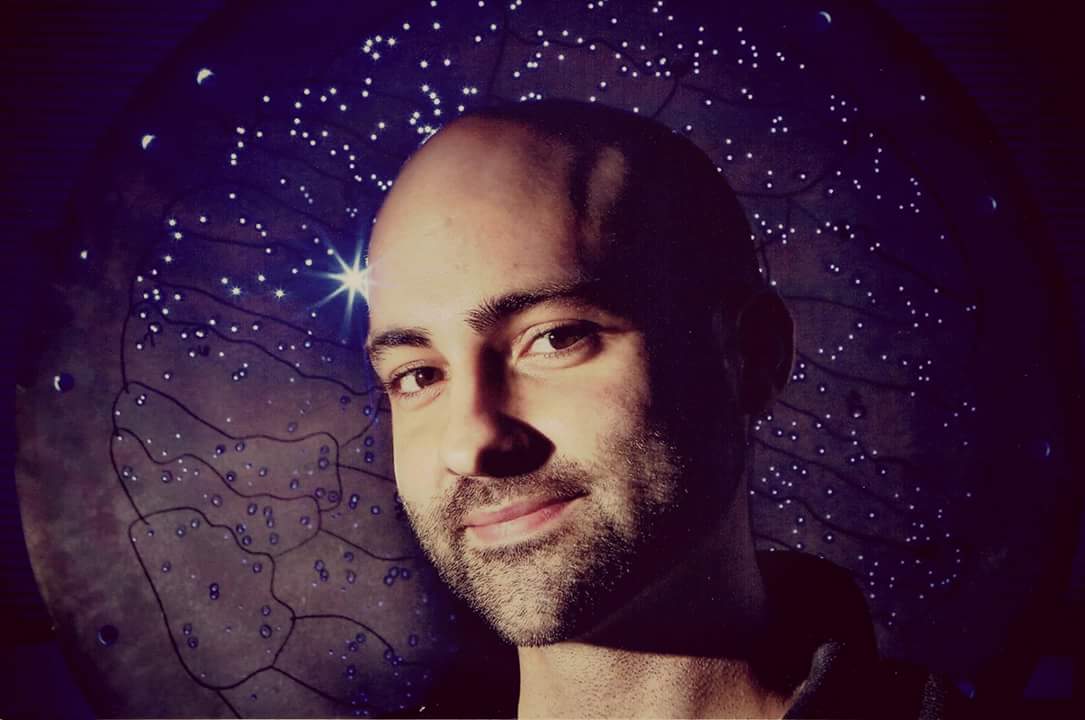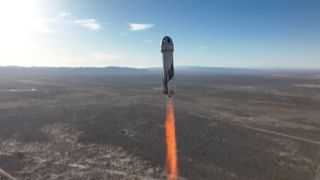Paul M. Sutter is a cosmologist at Johns Hopkins University. A prolific scientist, he has written over 60 academic publications on topics such as the earliest moments of the big bang and the largest objects in the universe. Paul is also an award-winning science communicator. He has authored three critically acclaimed, international bestselling books and has hosted television shows on Discovery, Science Channel, History Channel, and numerous digital outlets. You can find his essays in The New York Times, Scientific American, Nautilus, and more. In addition to regular appearances on NBC News, BBC News, CNN, and The Weather Channel, Paul has developed one of the most popular podcasts in the world and is a globally recognized leader in the intersection of art and science, especially in his role as a United States Cultural Ambassador.
Latest articles by Paul Sutter
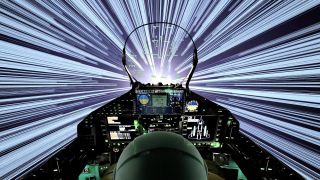
Could we travel to parallel universes?
By Paul Sutter published
If parallel universes exist, can we access them? Let's explore the possibility.
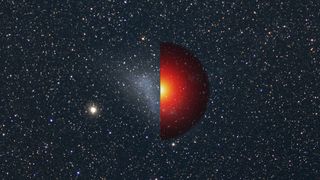
'Heavy' dark matter would rip our understanding of the universe apart, new research suggests
By Paul Sutter published
Dark matter can't be too heavy or it might break our best model of the universe, new research suggests.
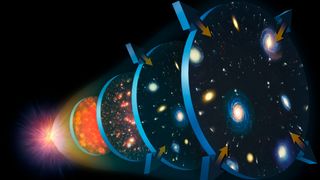
How 'quantum foam' may have inflated the early universe
By Paul Sutter published
For decades, scientists assumed that the expansion of the universe was powered by a new entity, known as the inflaton, but new research suggests that it may have been possible without it.
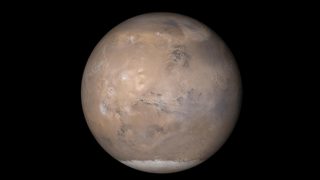
We finally know where to look for life on Mars
By Paul Sutter published
Ever since the discovery of methane on Mars, scientists have wondered if the Red Planet might harbor life. Now, researchers know where to look: deep under the surface of a broad Martian plain.

New flexible 'metamaterial' inspired by nature could help us build shapeshifting space habitats and telescopes
By Paul Sutter published
Researchers have designed a flexible material that could pave the way for the development of adaptable space structures.
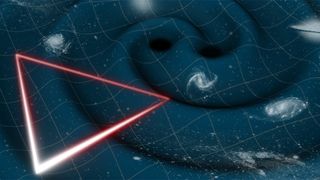
Black hole paradox that stumped Stephen Hawking may have a solution, new paper claims
By Paul Sutter published
As black holes slowly vanish through Hawking radiation, their information may be preserved in subtle space-time ripples, a new theory suggests.

These 5 particles are so strange, we're not sure they exist
By Paul Sutter published
Scientists theorize there could be subatomic particles we have yet to discover. Here are five of the weirdest, rarest hypothetical particles in the universe.
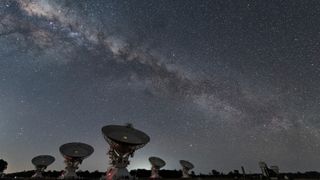
How the 'Great Filter' could explain why we haven't found intelligent aliens
By Paul Sutter published
One possible reason why we haven't found any intelligent life in the cosmos the Great Filter argument, which says that very few civilizations make it to the advanced spacefaring stage.
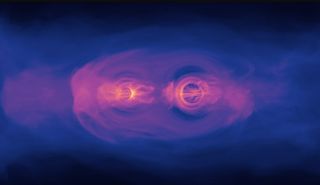
'Impossible' black holes discovered by the James Webb Space Telescope may finally have an explanation
By Paul Sutter published
Peculiar James Webb Space Telescope observations seem to show gargantuan black holes in the earliest moments of the universe. New research may explain how they formed, thanks to primordial "seeds".
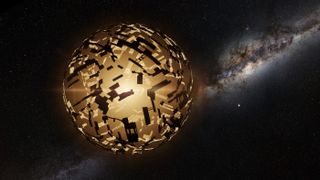
The fastest-moving stars in the galaxy may be piloted by intelligent aliens, new paper suggests
By Paul Sutter published
To explore the galaxy and hunt for resources, intelligent aliens might need to turn their home stars into natural spaceships, a new paper suggests. A few known star systems might fit the bill.
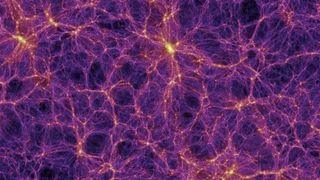
'Superhighways' connecting the cosmic web could unlock secrets about dark matter
By Paul Sutter published
Giant filaments crisscross the universe, connecting galaxy clusters like superhighways between cities. But due to their complex shapes, they are stubbornly difficult to measure.
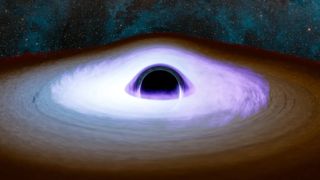
Dark matter might make space-time ring like a bell around black holes — and we might be able to 'hear' it
By Paul Sutter published
To explain why dark matter particles haven't come up in any direct detection experiments, physicists have wondered if it may be a kind of particle known as an axion.
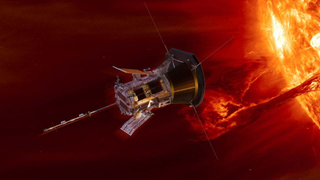
NASA's Parker Solar Probe is solving long-standing mysteries about the sun. Here's what we've learned so far.
By Paul Sutter published
The goal of the Parker Solar Probe mission is to investigate the mysteries of the sun's corona, its outer atmosphere. What has it learned so far?
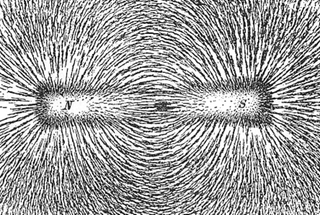
Where did the universe's magnetic fields come from?
By Paul Sutter published
Magnetic fields are everywhere in the universe. But where do they come from?
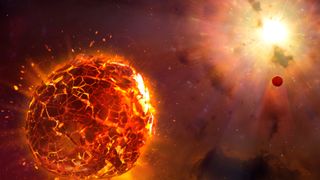
Could a supernova ever destroy Earth?
By Paul Sutter published
When stars explode as supernovas, they can cause serious cosmic carnage. Is Earth in any danger from any nearby stars?
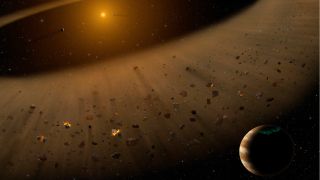
Does alien life need a planet to survive? Scientists propose intriguing possibility
By Paul Sutter published
While such organisms may or may not exist in the universe, the research has important implications for future human endeavors in space.
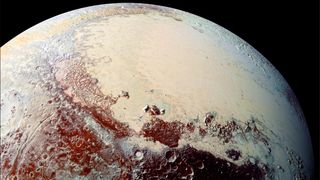
The Pluto problem: Is it time to rethink our definition of a planet?
By Paul Sutter published
In 2006, the International Astronomical Union (IAU) famously demoted Pluto to a dwarf planet. Things have been a bit of a mess since then — so is it time to redefine the planet?
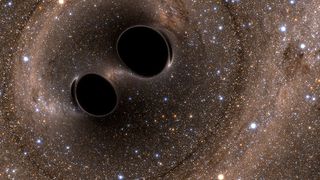
What happens when black holes merge?
By Paul Sutter published
Space mysteries Black hole mergers are beautiful — and some of the most violent events in the cosmos. Here's how the process unfolds.
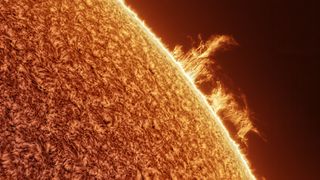
Could we turn the sun into a gigantic telescope?
By Paul Sutter published
Using a phenomenon known as gravitational lensing, it might be possible to use the sun as a gigantic telescope to peer deep into space.
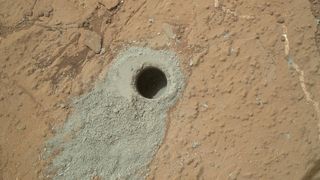
What's behind the Martian methane mystery?
By Paul Sutter published
The cause of mysterious methane spikes on Mars may be a strange form of alien life — or it may just be interesting chemistry. Either way, something odd is happening on the Red Planet.
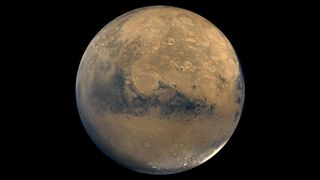
A long-lost moon could explain Mars' weird shape and extreme terrain
By Paul Sutter published
A long-lost moon could explain why Mars is so different from the other rocky planets in the solar system.
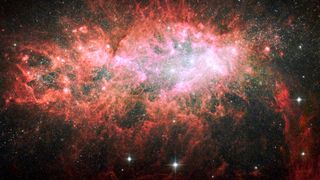
Supercharged 'cocoon of energy' may power the brightest supernovas in the universe
By Paul Sutter published
Every so often, astronomers detect a supernova explosion that's 100 times brighter than it should be. A new paper may reveal the strange source of these "superluminous" supernovas.
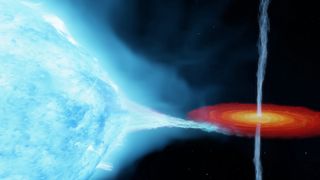
Some black holes have a 'heartbeat' — and astronomers may finally know why
By Paul Sutter published
A tiny fraction of known black holes emit X-ray signals that resemble a human "heartbeat." Now, new research may finally explain the strange phenomenon.
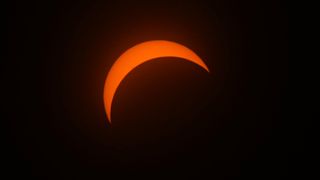
Astronomers discover oldest known eclipse reference in 6,000-year-old Hindu text
By Paul Sutter published
Astronomers combed through an ancient Hindu text and discovered that it referenced a total solar eclipse that occurred roughly 6,000 years ago, making it the oldest known mention of an eclipse.
Breaking space news, the latest updates on rocket launches, skywatching events and more!
